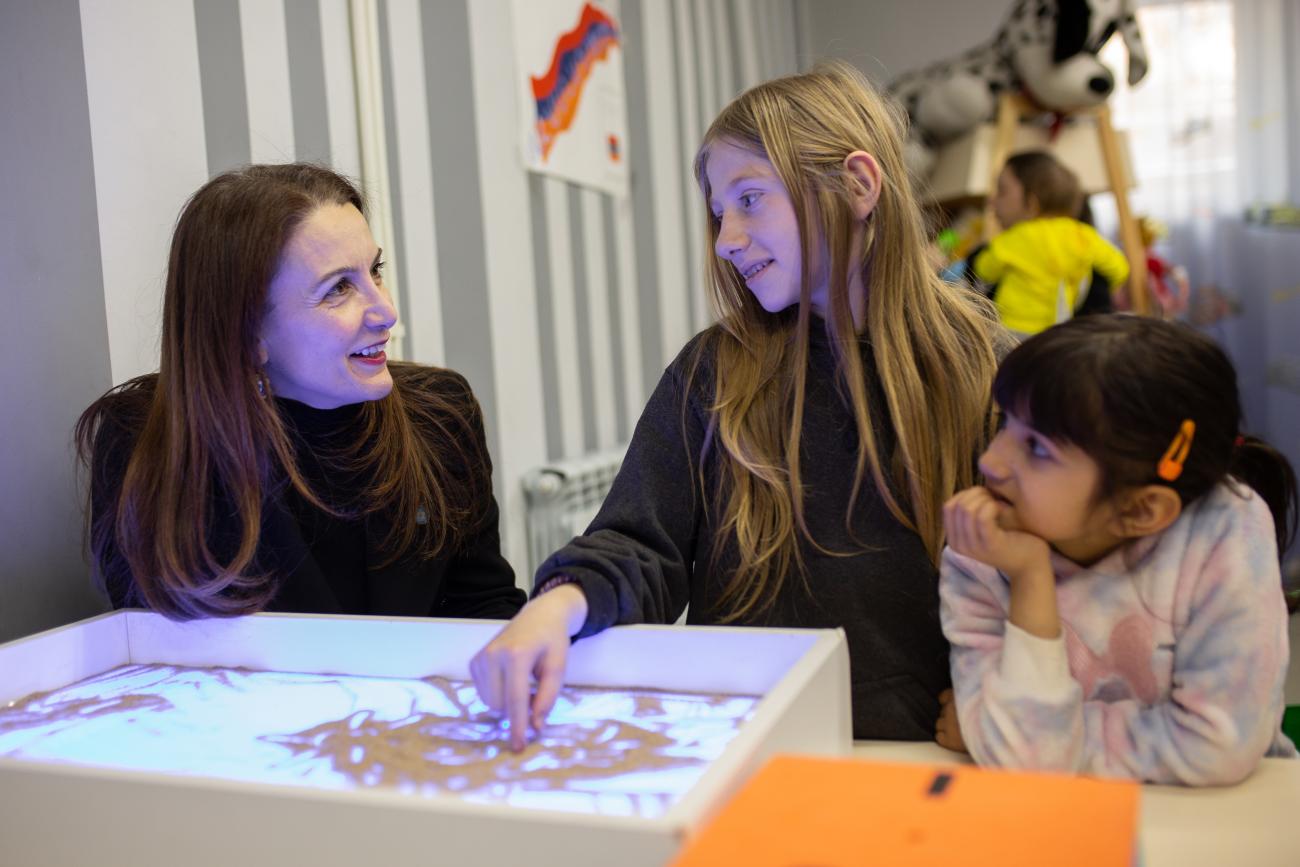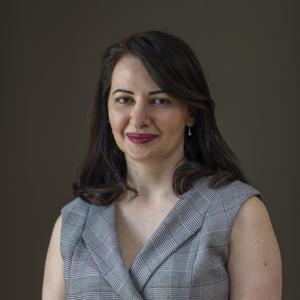UNICEF Regional Director for Europe and Central Asia and Special Coordinator for the Refugee and Migrant Response in Europe, Regina De Dominicis has concluded her first official visit to Armenia.
During the visit, De Dominicis met with Government officials Ms Zhanna Andreasyan, Minister of Education, Science, Culture and Sport; Ms Anahit Avanesyan, Minister of Health; Mr Paruyr Hovhanisyan, Deputy Minister of Foreign Affairs; Mr Tigran Khachatryan, Deputy Prime Minister; and Mr Narek Mkrtchyan, Minister of Labor and Social Affairs. Discussions focused on support to the ongoing reforms and key priorities for children in Armenia.
De Dominicis reaffirmed UNICEF’s commitment to continue working across the humanitarian-development nexus with the government to reach all children with equitable access to protection services, health care, education and social support, including refugee children and families.
In response to the influx of refugees in September, UNICEF has trained hundreds of frontline social service professionals to provide psychological first aid and mental health care, already reaching 7,025 children, adolescents and caregivers.
“Displacement is deeply distressing for children. We must not forget that 30,000 refugee children and families require ongoing psychological support and continuous access to critical services,” said De Dominicis. UNICEF is appealing for USD $12.6 million to meet the needs of refugee children and families until March 2024. This appeal is only 40 per cent funded.
Nearly 3,700 school-age children have received school bags, stationery and other learning supplies and a 320-strong workforce of educators in kindergartens across five regions have been trained to ensure an inclusive learning environment for all children. Families of 14,000 children are set to receive clothing vouchers this year and 2,500 pregnant women and new mothers will receive pharmacy vouchers.
During the visit, together with Ms Anahit Manasyan, Human Rights Defender of Armenia, De Dominicis also met with children and caregivers at a UNICEF-supported centre that provides care and support to vulnerable children and families, including survivors of violence and refugees. The Fund for Armenian Relief Children’s Support Center gives children and their families a safe space to access critical services including psychosocial support, health care, and helps prevent family separation.
“I met a young girl called Hilda who despite her struggles told me that she enjoys her school, loves maths and wants to become a painter. She loves to come to the centre because she finds peace in it. The centre is a lifeline for children and their families, and social workers and psychosocial support professionals are doing an incredible work in case management and referral,” said De Dominicis.
UNICEF continues to work with the Armenian Government, partners and civil society to increase access to mental health and psychosocial assistance for children and their parents, while continuing to strengthen community-based services in the long term.
UNICEF has been working in Armenia since 1994 and has been supporting the Government in the design and implementation of programmes to address the needs of Armenia’s children in areas of child protection, education, health care, and social policy, with a focus on the most vulnerable.









